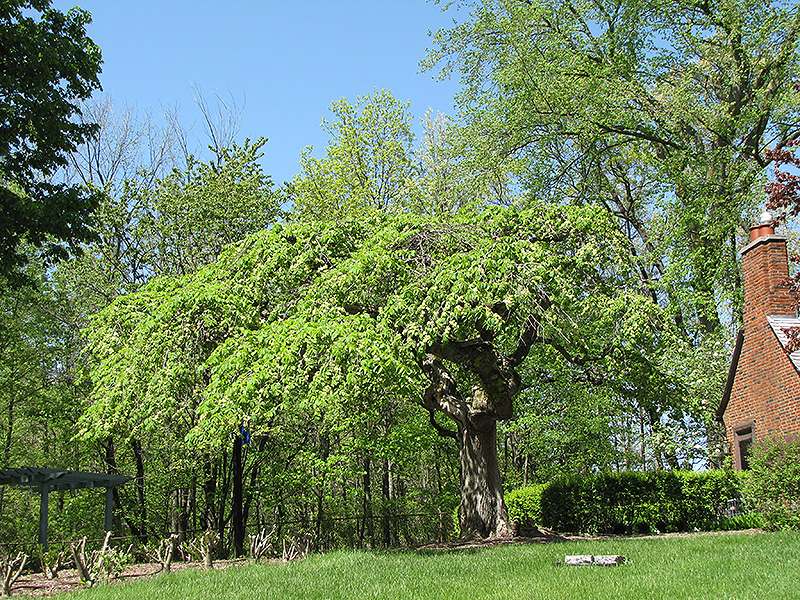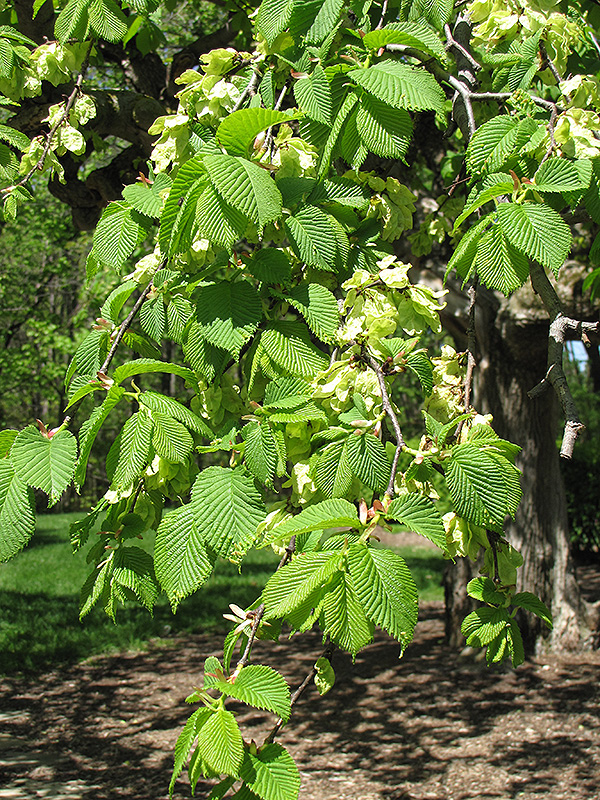Height: 20 feet
Spread: 30 feet
Sunlight:
![]()
Hardiness Zone: 4
Other Names: Wych Elm
Description:
A very unusual large accent tree with an umbrella-like habit of growth; very low canopy and dense large green leaves cast a deep shade beneath; certainly not for every location, requires a great deal of room to spread; for specimen use only
Ornamental Features
Camperdown Elm is primarily valued in the landscape for its highly ornamental weeping form. It has dark green deciduous foliage. The serrated pointy leaves turn yellow in fall.
Landscape Attributes
Camperdown Elm is a dense deciduous tree with a rounded form and gracefully weeping branches. Its strikingly bold and coarse texture can be very effective in a balanced landscape composition.
This is a relatively low maintenance tree, and is best pruned in late winter once the threat of extreme cold has passed. It has no significant negative characteristics.
Camperdown Elm is recommended for the following landscape applications;
- Accent
Planting & Growing
Camperdown Elm will grow to be about 20 feet tall at maturity, with a spread of 30 feet. It has a low canopy with a typical clearance of 1 foot from the ground, and is suitable for planting under power lines. It grows at a fast rate, and under ideal conditions can be expected to live for 70 years or more.
This tree should only be grown in full sunlight. It is very adaptable to both dry and moist locations, and should do just fine under average home landscape conditions. It is not particular as to soil type or pH, and is able to handle environmental salt. It is highly tolerant of urban pollution and will even thrive in inner city environments. This is a selected variety of a species not originally from North America.


